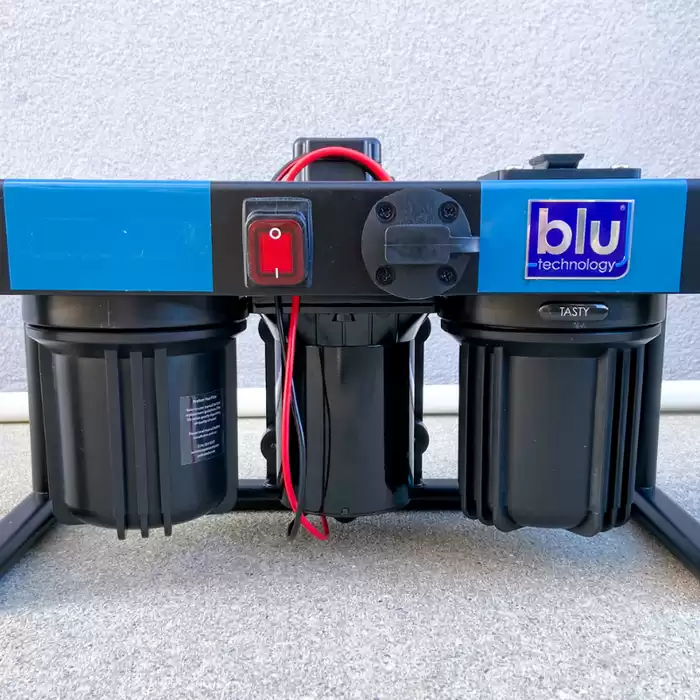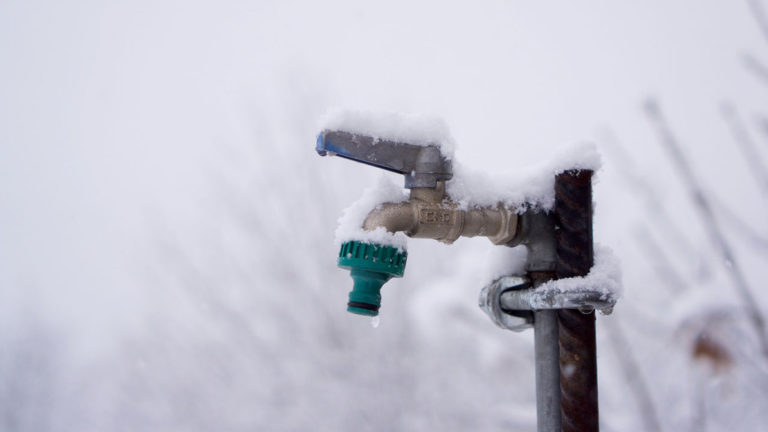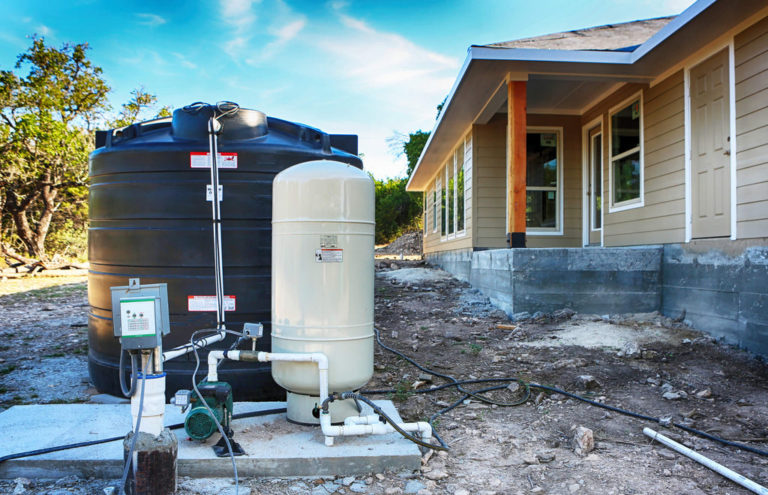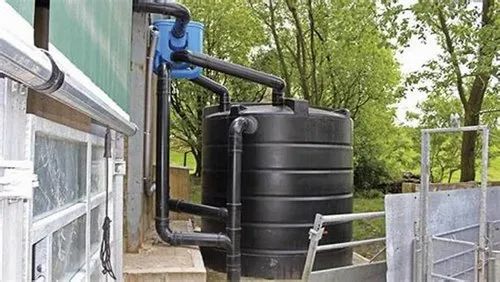Are you looking for a reliable and efficient way to purify your drinking water without breaking the bank?
If so, then you’re in luck.
With the latest advancements in technology, it’s now possible to access high-quality water filtration systems that are tailored specifically to off-grid homesteads on a budget.
These state-of-the-art systems use cutting-edge techniques like reverse osmosis and UV purification to remove impurities and contaminants from your drinking water, giving you peace of mind and the assurance that you’re providing a healthy and safe source of hydration for yourself and your family.
Whether you’re looking for a DIY solution or prefer to have a professionally-installed system, there are plenty of options available to suit your needs and budget.
We’ll explore the best high-tech water filtration systems that fit the bill, so keep reading!
Identify your water sources
Determine the source of your water, such as a well, spring, or rainwater collection system, as this will help you choose the right filtration system for your needs.
Whether you rely on a well, spring, or rainwater collection system, each source requires a unique approach to filtration.
For example, if you use a well as your water source, you’ll need to consider the risk of bacterial contamination, and therefore may require a more robust filtration system that can remove harmful pathogens.
On the other hand, if you collect rainwater, you may be more concerned with removing impurities and sediment from the water.
By identifying your water source and understanding your specific needs, you can choose a filtration system that is tailored to your situation, ensuring that your water is safe to drink and use in your home.
Assess your water quality
Test your water for contaminants such as bacteria, viruses, and heavy metals to determine the level of filtration you need.
Assessing your water quality is a important step in selecting the right water filtration system for your home or business.
Testing your water for contaminants such as bacteria, viruses, and heavy metals can help you determine the level of filtration you need to ensure your water is safe to drink.
Bacteria such as E.
Coli and coliform can cause a range of illnesses, while viruses like norovirus and rotavirus can also lead to severe gastrointestinal symptoms.
Heavy metals like lead, mercury, and arsenic can be toxic to your health, especially for children and pregnant women.
By testing your water for these contaminants, you can determine the level of filtration you need to remove them.
For example, if your water test shows high levels of lead, you may need a system that can remove lead through a process like reverse osmosis.
Without proper testing and assessment, you may end up with a filtration system that is not effective in removing the contaminants present in your water.
Therefore, it is essential to take the time to test your water and assess its quality to ensure you select the right filtration system for your needs.
Consider the whole-house approach
Instead of point-of-use filters, consider a whole-house filtration system that treats all the water in your home. This can be more cost-effective and efficient in the long run.
A whole-house filtration system is a comprehensive approach to water treatment that can provide long-term cost savings and efficiency.
Instead of relying on point-of-use filters, which only treat water at a single point of use, a whole-house system treats all the water in your home.
This means that every faucet, shower, and toilet in your home will receive clean, filtered water, providing a consistent and superior drinking water experience.
Point-of-use filters can become clogged and need to be replaced frequently, while a whole-house system can last for years with proper maintenance.
Furthermore, a whole-house system can also provide protection against scaling and corrosion, which can damage your home’s plumbing and appliances over time.
By investing in a whole-house filtration system, you can ensure that your home’s water is clean, safe, and healthy for your family, all while providing long-term cost savings and efficiency.
Look for multi-stage filtration
A multi-stage filtration system can remove a wide range of contaminants, including sediment, chlorine, lead, and bacteria, in a single system.
Multi-stage filtration systems are designed to remove a wide range of contaminants from your drinking water, providing you with a safer and healthier drinking water solution.
These systems utilize multiple filters, each specifically designed to target different types of contaminants.
The first stage of filtration is typically a sediment filter, which removes any sediment or particulate matter from the water.
The next stage is usually a carbon filter, which targets chlorine, lead, and other chemicals that can be harmful to your health.
The water passes through a bacteriostatic filter, which removes any bacteria or other microorganisms that may be present in the water.
This multi-stage filtration process ensures that your drinking water is clean and safe to consume, providing you with peace of mind and a healthy drinking water solution.
These systems are typically easy to install and maintain, making them a cost-effective solution for any household or business looking to improve their drinking water quality.
Choose a system with a long-lasting filter
A filter with a longer lifespan can save you money and reduce waste. Look for systems with filters that can last for 6-12 months or more.
When selecting an air purifier, it’s important to consider the filter’s lifespan.
A filter with a longer lifespan can save you money and reduce waste.
Traditional air purifiers require frequent filter replacements, which can be costly and contribute to unnecessary waste.
However, some air purifiers feature high-quality filters that can last for 6-12 months or more, depending on usage and settings.
These long-lasting filters not only save you money but also reduce the amount of waste generated by frequent filter replacements.
By choosing an air purifier with a long-lasting filter, you can enjoy clean air while also being mindful of your budget and the environment.
Look for systems with filters that can last for at least 6-12 months to maximize your savings and minimize waste.
Check for certifications
Look for systems that have been certified by organizations such as NSF International or the Water Quality Association to ensure they meet certain standards for effectiveness and safety.
When shopping for a water filtration system, it’s essential to look for certifications from reputable organizations such as NSF International or the Water Quality Association.
These certifications ensure that the system meets certain standards for effectiveness and safety.
The NSF International certification, for example, verifies that the system can reduce or remove specific contaminants, such as lead, chromium, and viruses, to a safe level.
The Water Quality Association certification, on the other hand, guarantees that the system is designed and built to certain standards, such as the use of food-grade materials and the ability to remove a wide range of contaminants.
By choosing a system with these certifications, you can be confident that your water is safe to drink and that the system is effective in removing impurities.
Consider the system’s flow rate
Make sure the system can handle the water flow rate of your home, which can range from 1-5 gallons per minute (gpm).
When selecting a whole-house water filtration system, it’s important to consider the system’s flow rate to ensure it can handle the water flow rate of your home.
The flow rate of your home can range from 1-5 gallons per minute (gpm), depending on factors such as the number of occupants, water usage patterns, and geographic location.
A system with an insufficient flow rate may not be able to purify the water at the desired rate, leading to poor water quality and potential health risks.
On the other hand, a system with an excessive flow rate may cause unnecessary wear and tear on the equipment and increase energy consumption.
Therefore, it’s essential to choose a system that can handle the specific flow rate of your home to ensure optimal performance, cost-effectiveness, and peace of mind.
When evaluating different systems, consider factors such as the size of your home, the number of bathrooms and fixtures, and the amount of water usage to determine the appropriate flow rate for your specific needs.
Consider consulting with a professional to ensure the system you choose is properly sized and installed to meet your home’s unique requirements.
Shop around for the best price
Compare prices of different systems and manufacturers to find the one that fits your budget. Keep in mind that a higher price doesn’t always mean a better system.
When shopping for a home security system, it’s essential to compare prices from different manufacturers and systems to find the one that fits your budget.
A higher price doesn’t always guarantee a better system, so it’s important to evaluate the features and capabilities of each system before making a decision.
Start by researching different brands and models to determine which ones offer the features that are most important to you, such as 24/7 monitoring, video surveillance, or smart home integration.
Then, check online retailers, local hardware stores, and security providers in your area to find the best deals.
Keep in mind that some providers may offer discounts for bundling multiple services or for signing a long-term contract.
By shopping around and evaluating your options carefully, you can find a home security system that fits your budget and provides the protection and peace of mind you need.
Want More? Dive Deeper Here!
Hey there! If you’re the type who loves going down the rabbit hole of information (like we do), you’re in the right spot. We’ve pulled together some cool reads and resources that dive a bit deeper into the stuff we chat about on our site. Whether you’re just killing time or super into the topic, these picks might just be what you’re looking for. Happy reading!
- Solar-powered system offers a route to inexpensive desalination | MIT News | Massachusetts Institute of Technology
- (PDF) Scalable, Solar Powered Membrane-Based Water Purification Systems for Community Development in Developing Countries
- (PDF) Off-Grid-Industry Yearbook | Harald Schuetzeichel – Academia.edu






